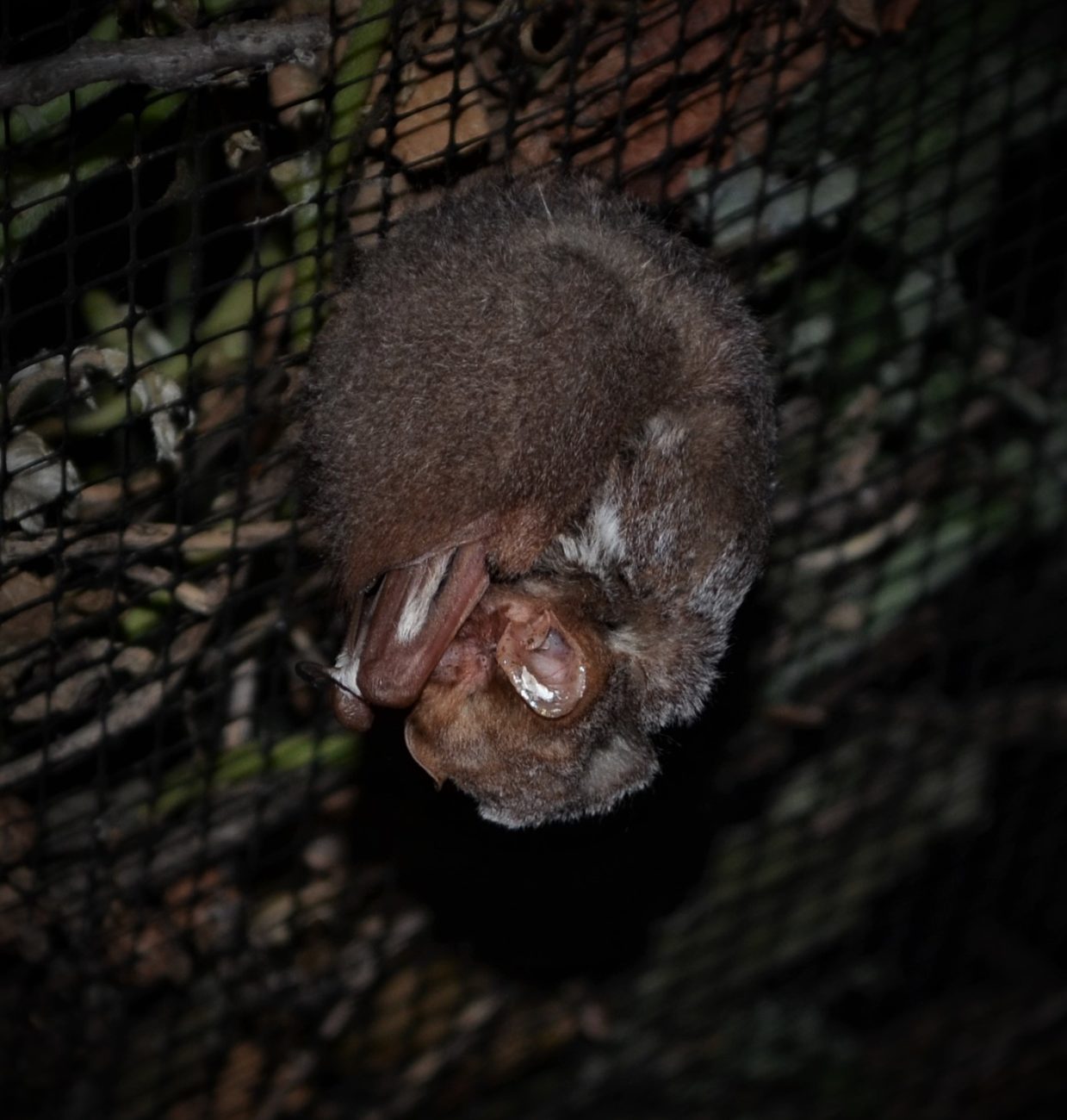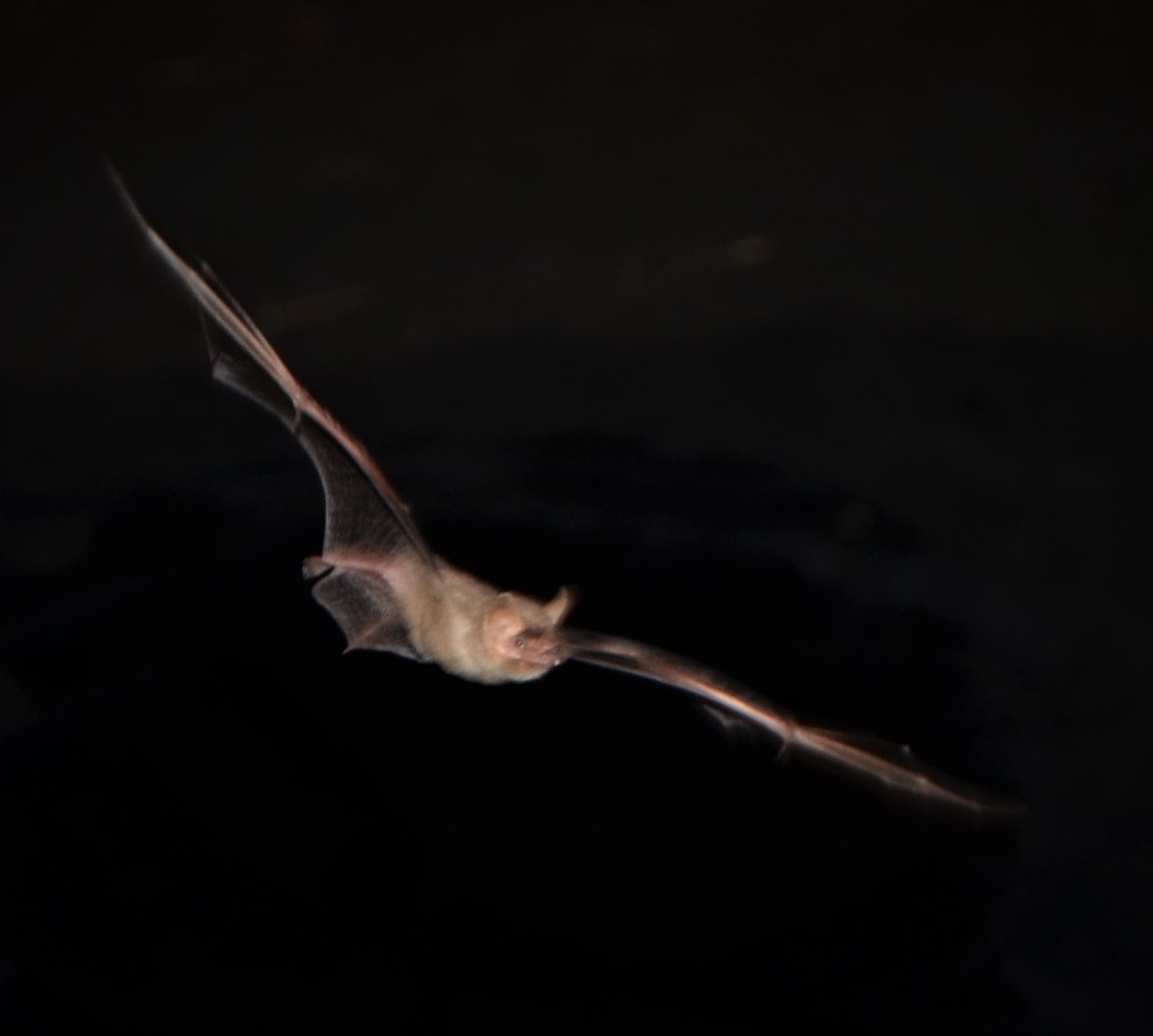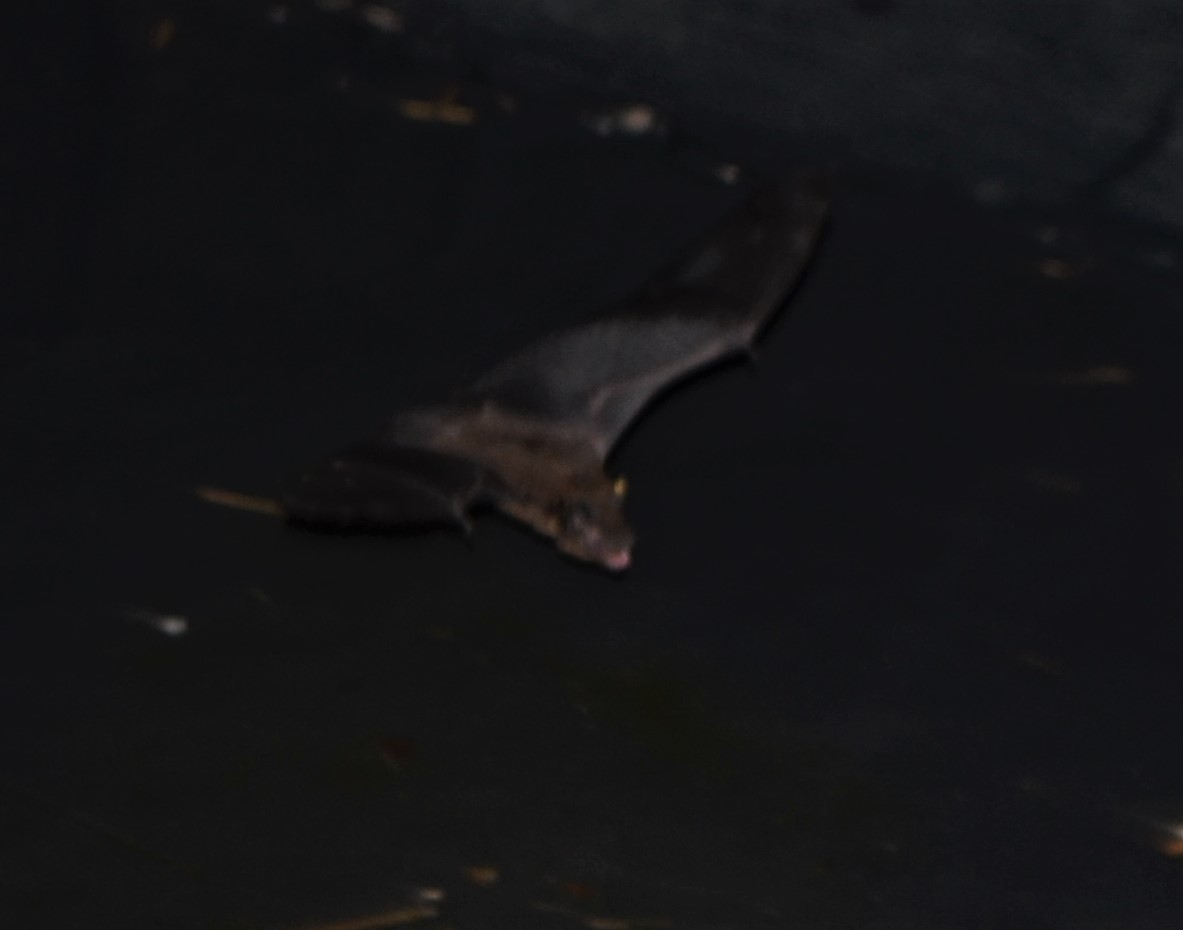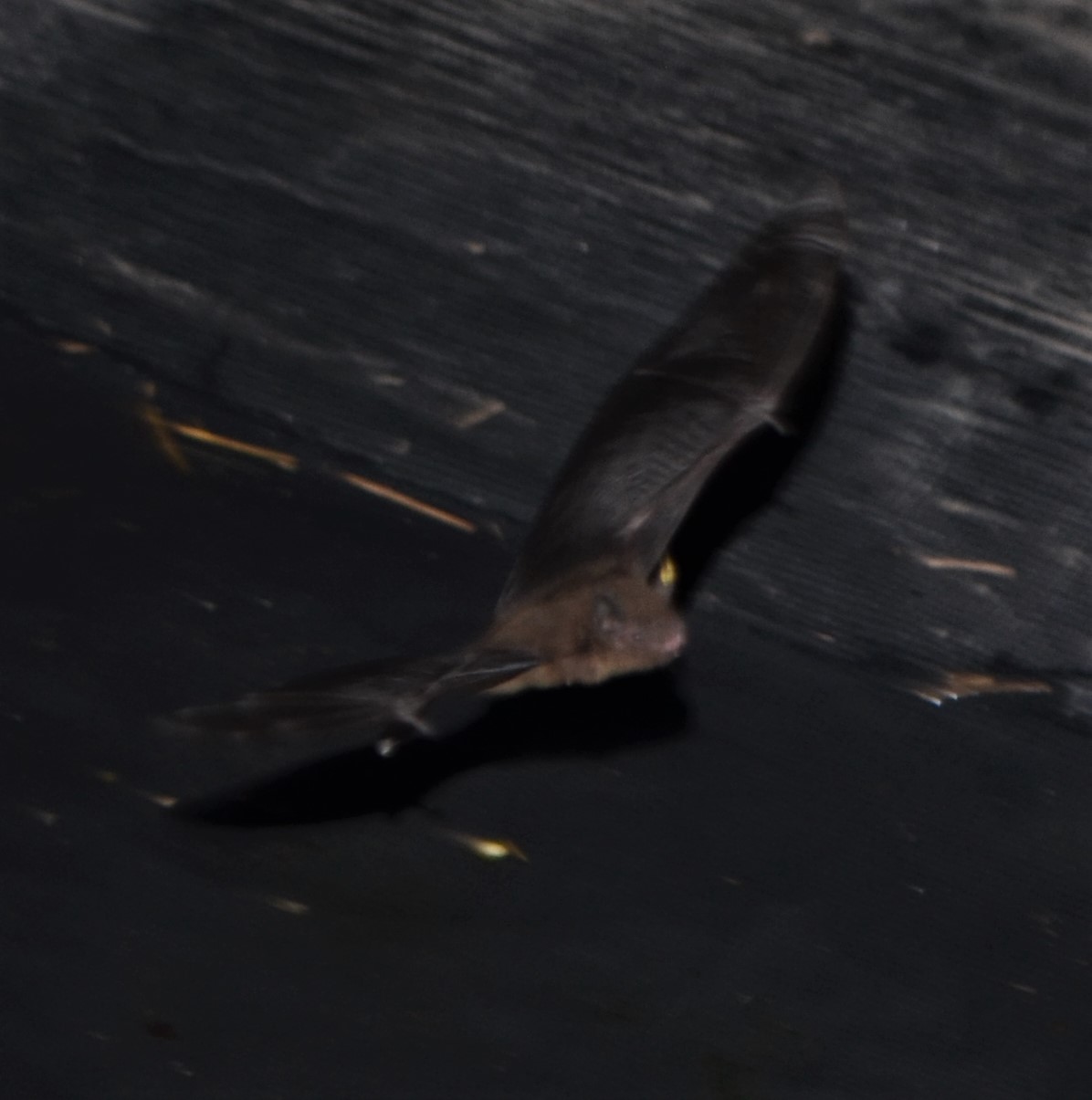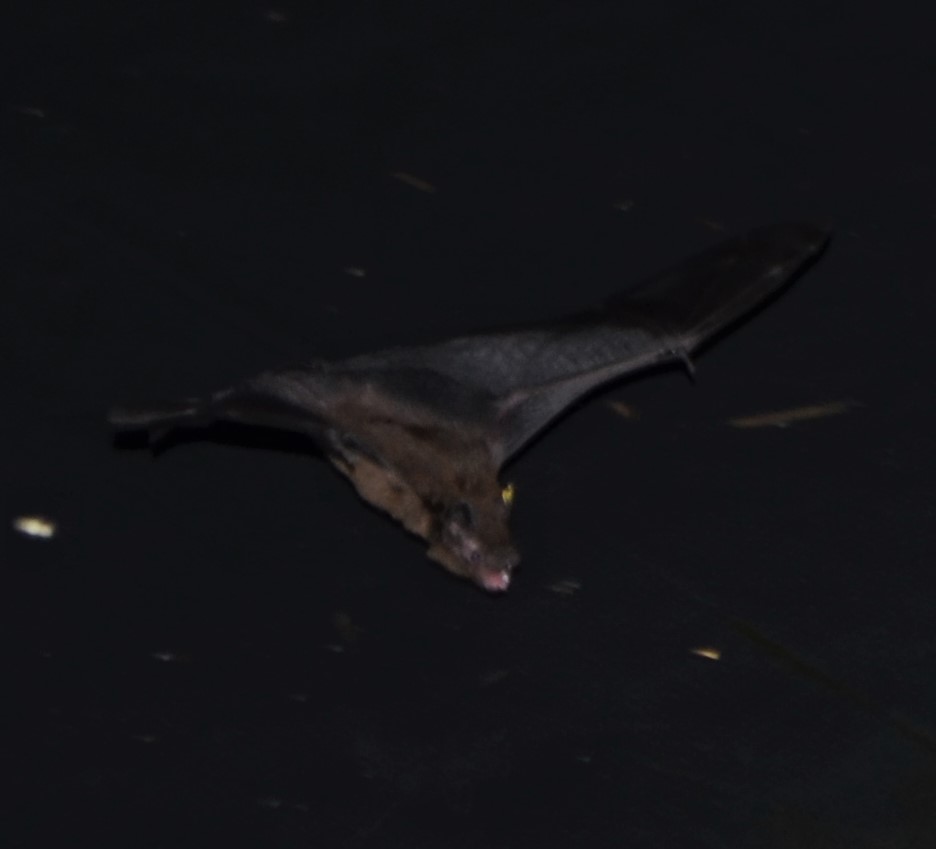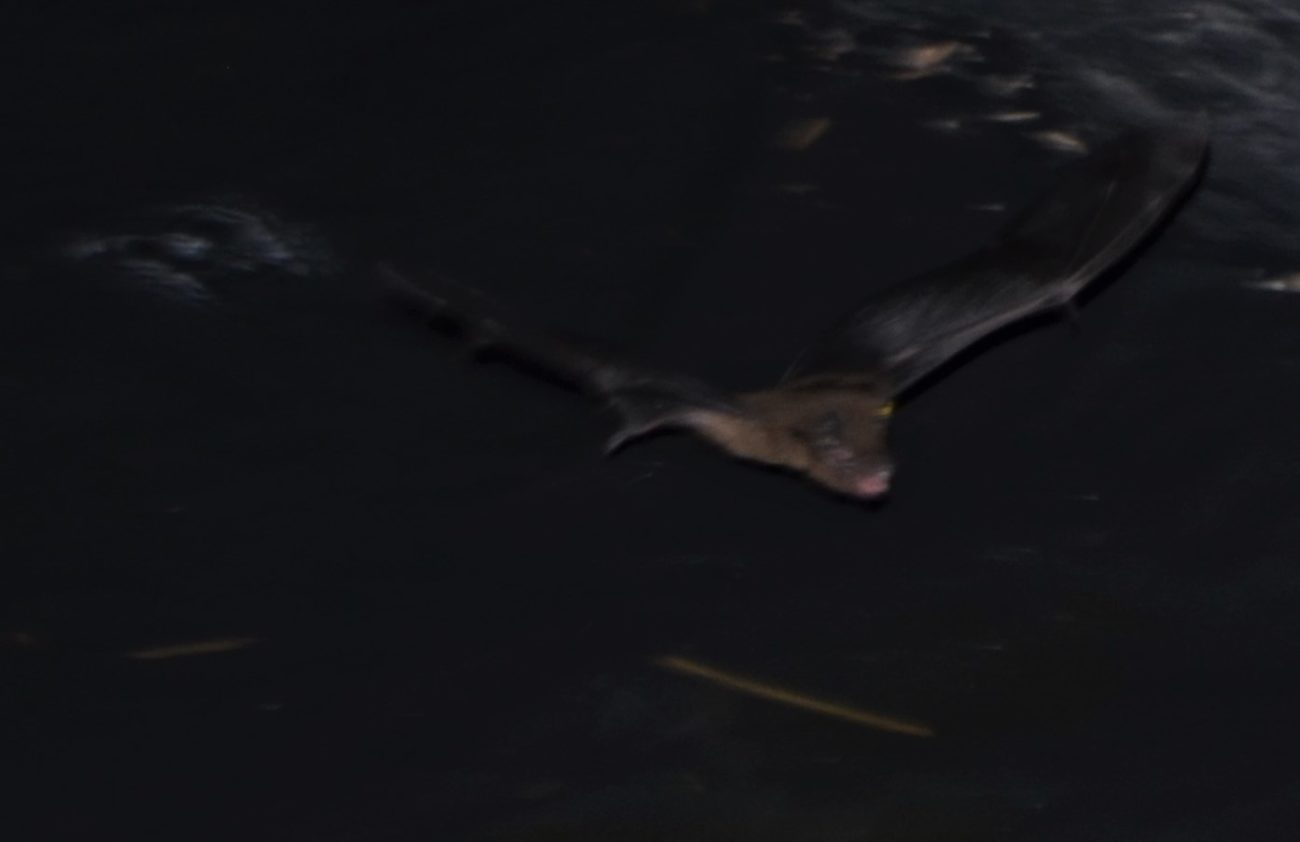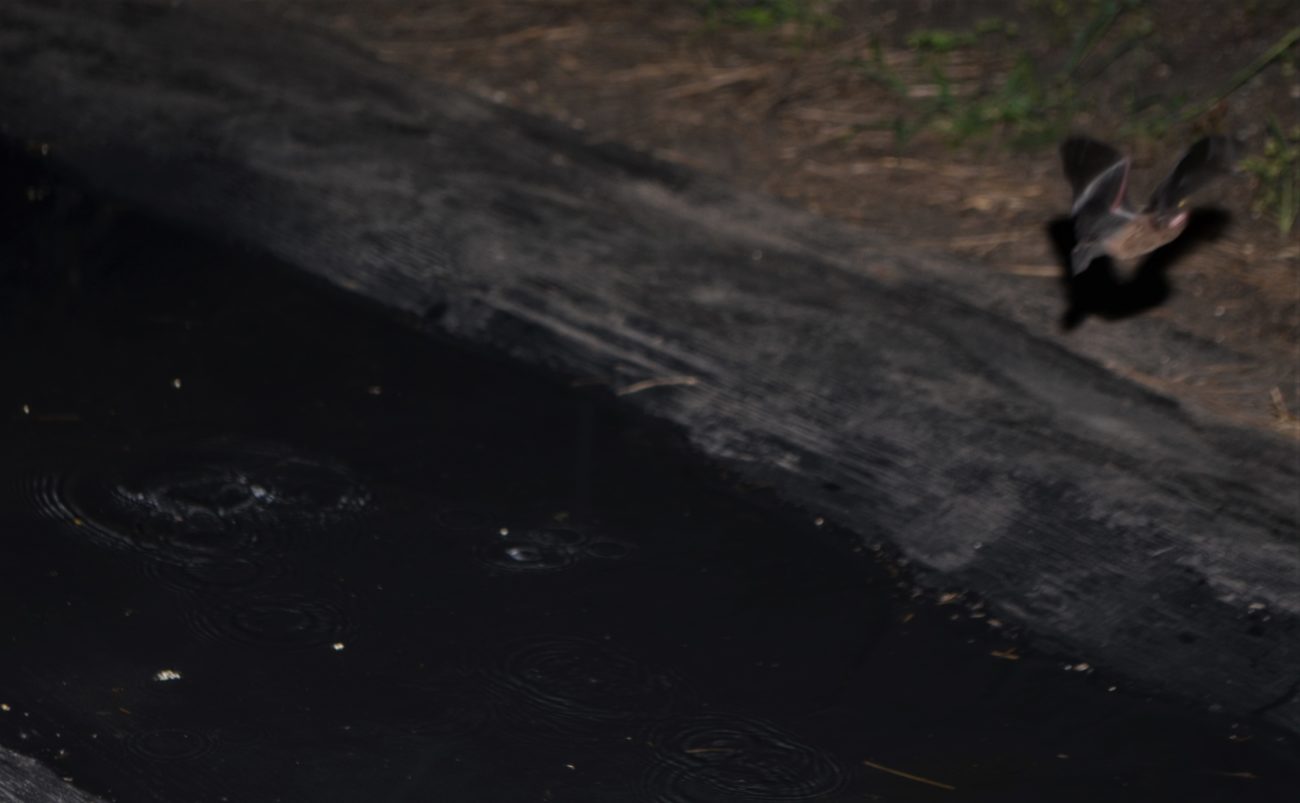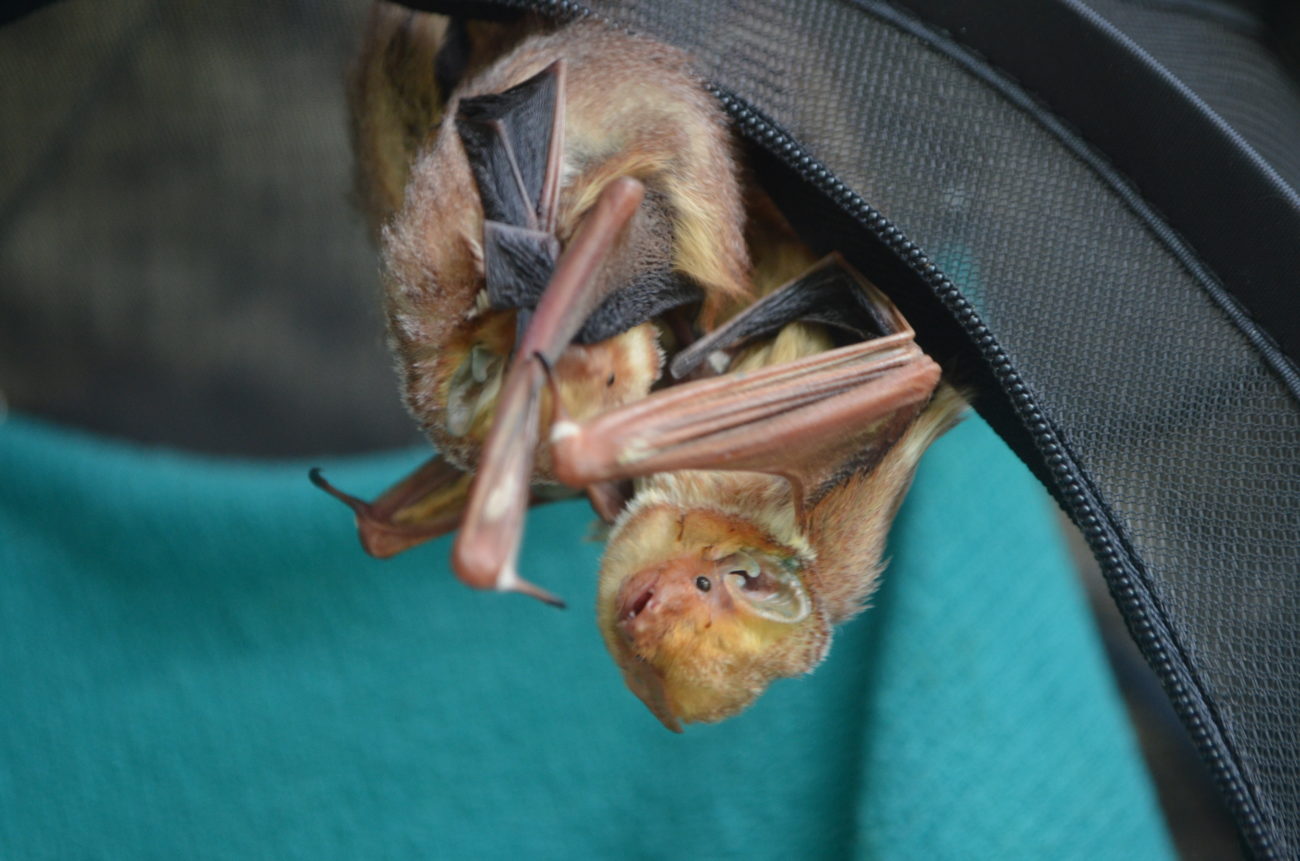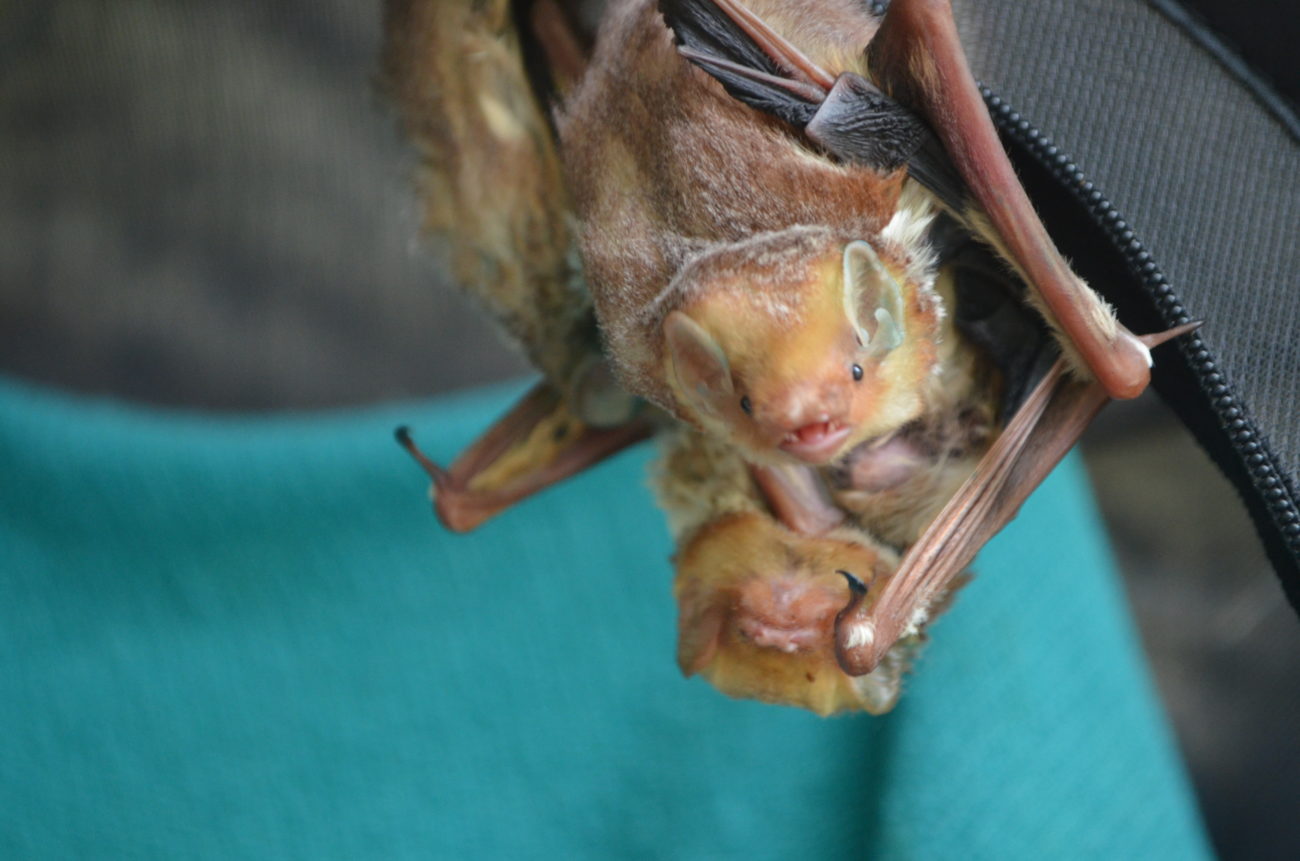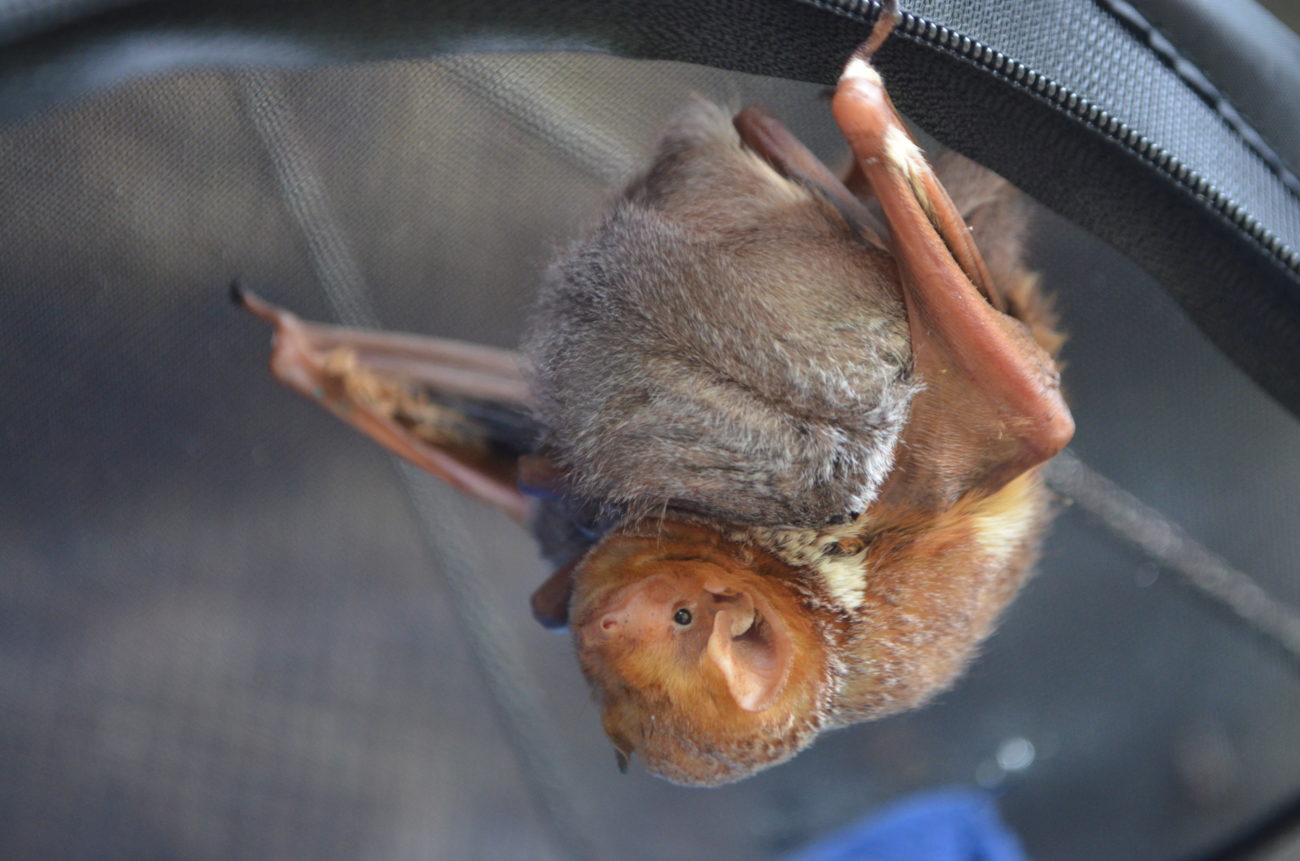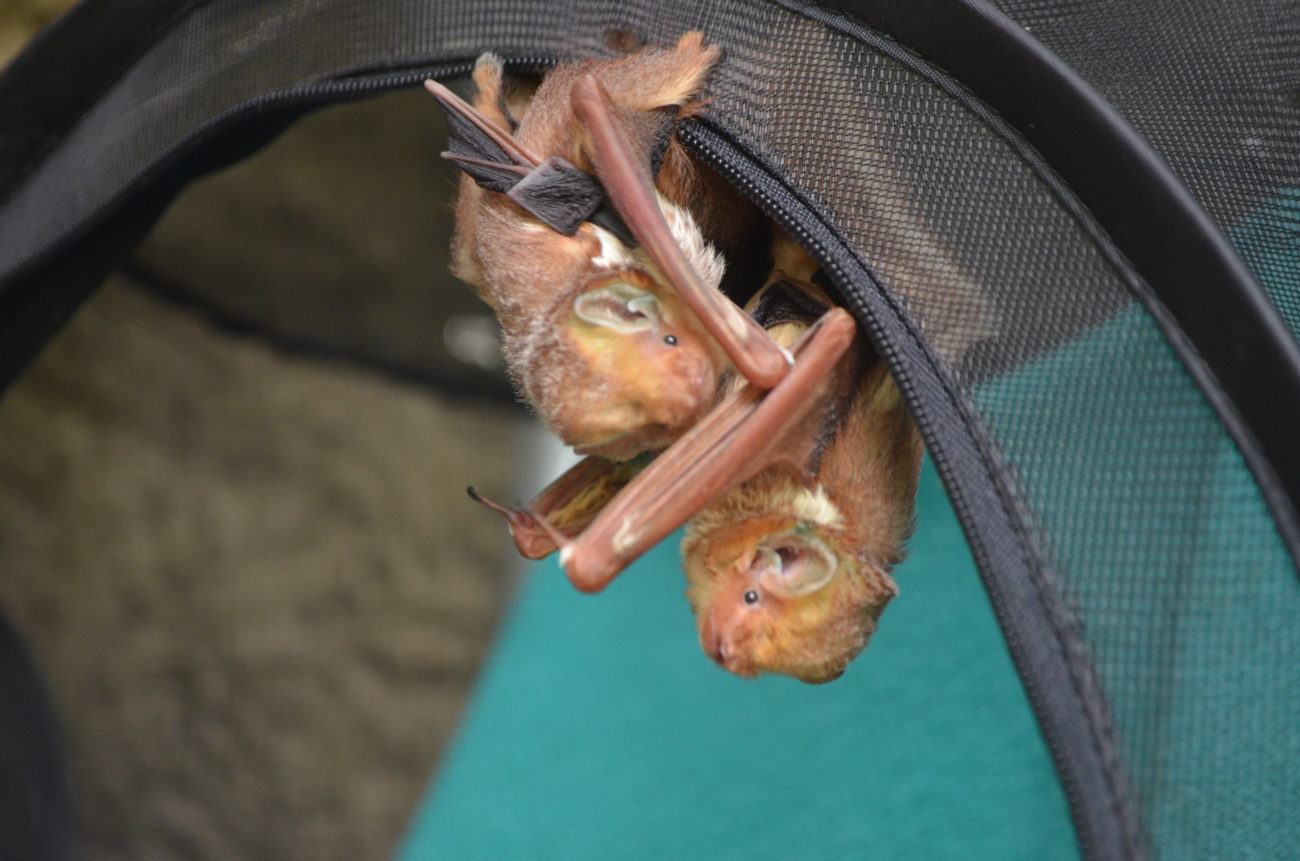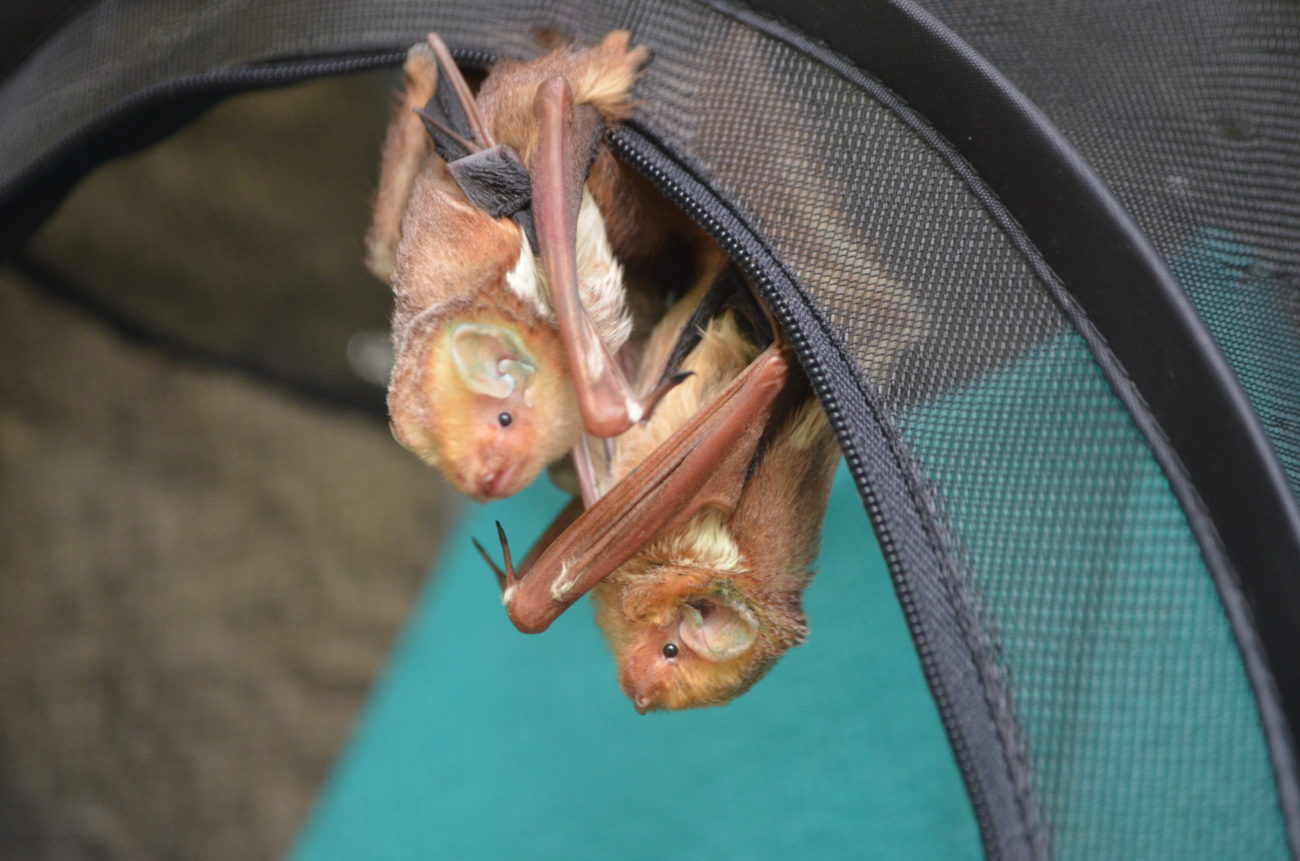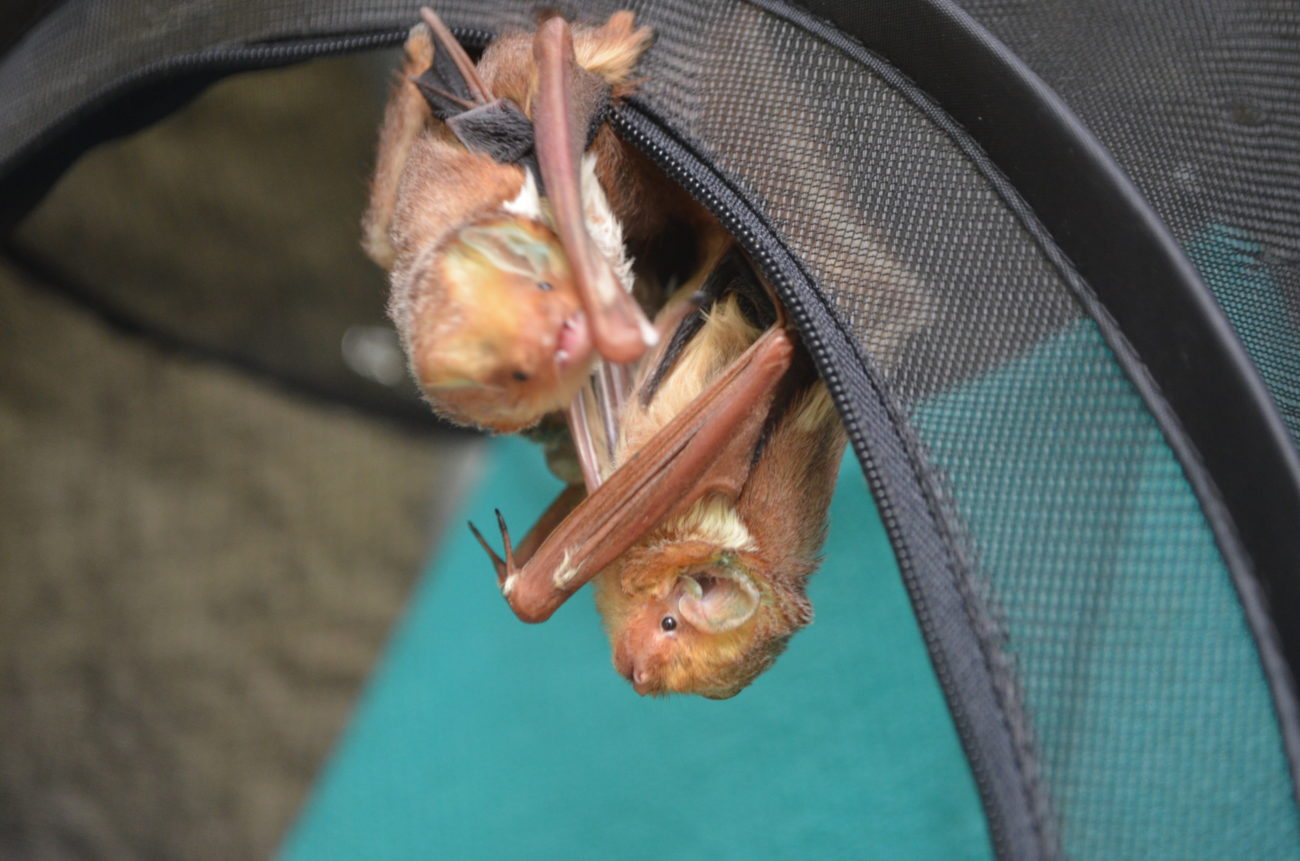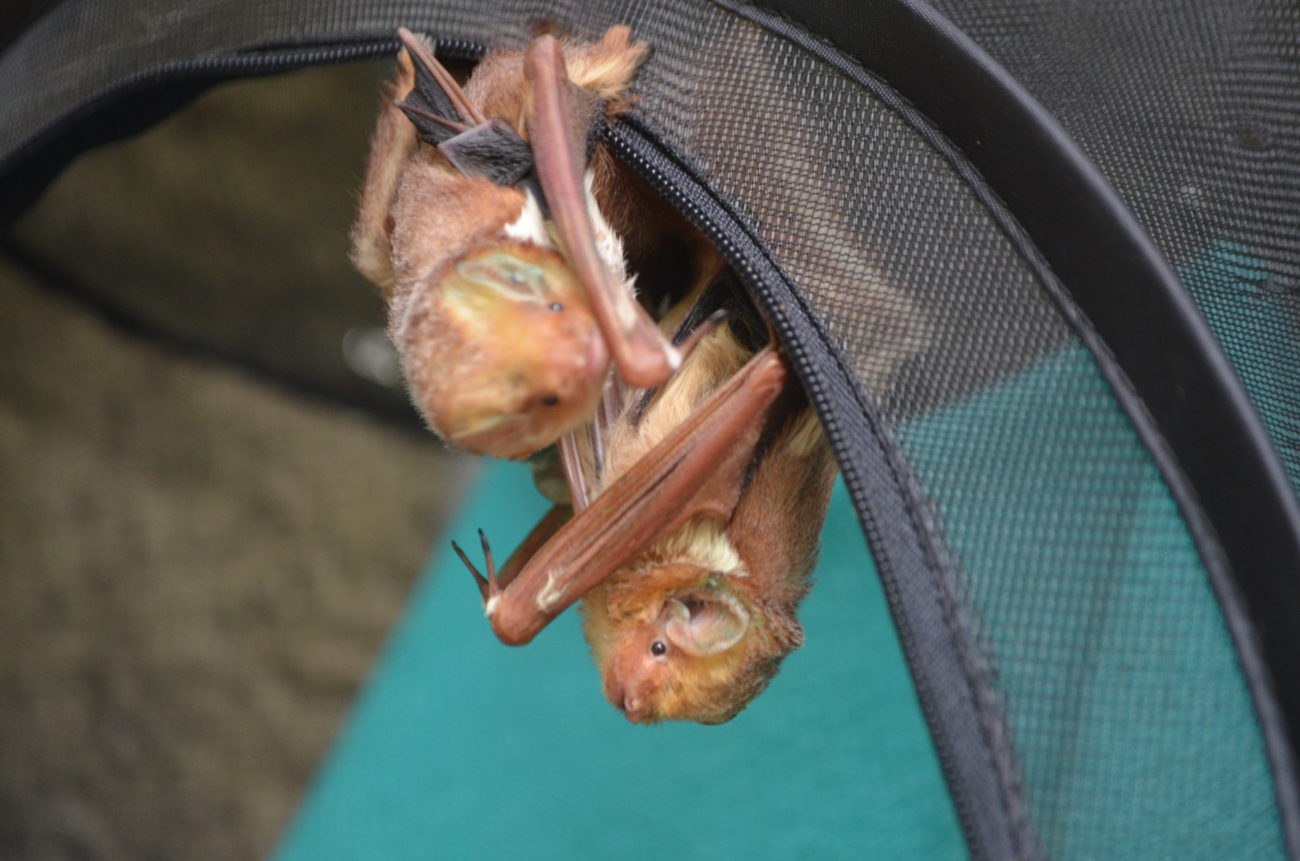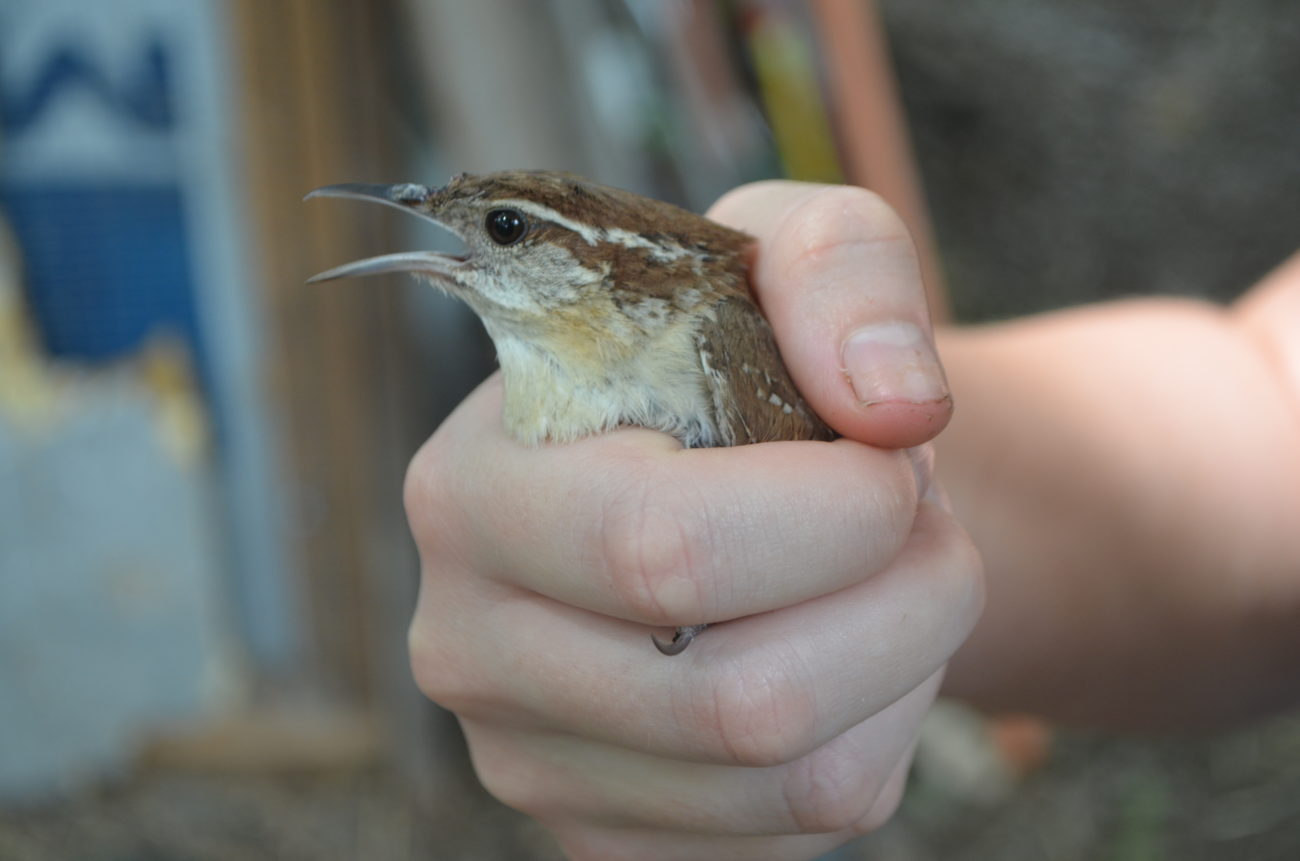Tail of a Night Bloomer – Bat Bud
The Lasiurine bats, including this eastern red bat female, use their furry tail as a blanket, poncho, and cloaking device to keep warm, dry, and hidden while they hang from the foliage. The foot is just big enough to wrap around the stem of a leaf, and they’ll tuck under leaves to keep cool and hide from birds. They hide their wings and head as they curl up into that long tail, and, hanging from one foot, look like nothing more than a fuzzy ball on a stem, a dead leaf, or a pinecone.
As such, they are bat buds, sleeping all day then blooming at dark to transform into voracious predators of night flying insects.
This beauty is a juvenile, almost full-sized, soon to be released into the wild. We know her from her white mark on the ear, designating her as our 99th intake this year back on June 23rd. We’ve taken in 35 more in the last few weeks, making designing unique marks a challenge!
